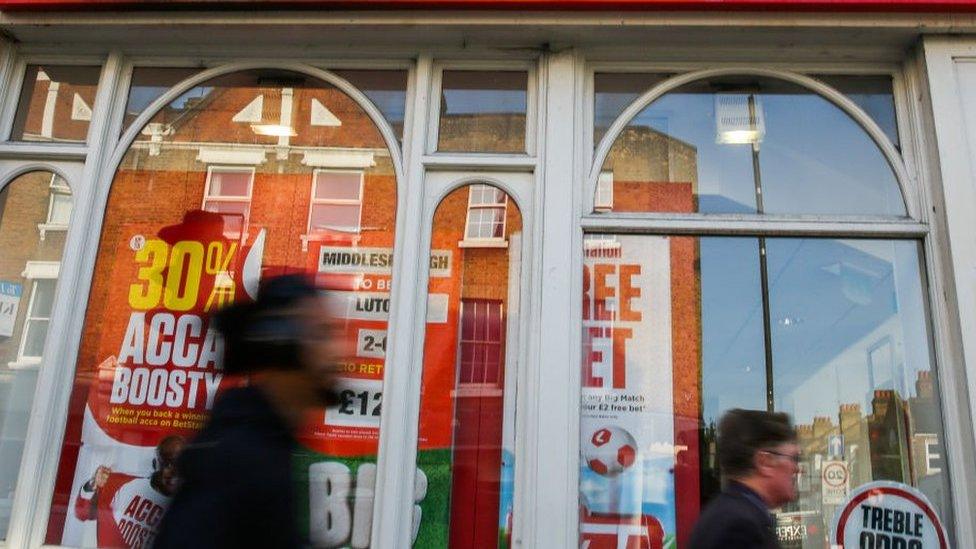Police failing to screen suspects for gambling addiction
- Published

Four out of every 10 police forces in England and Wales are failing to ask arrested suspects whether they have a gambling addiction, data reveals.
Screening for drug or alcohol addiction and mental-health problems is standard practice among police forces.
But 41% of forces fail to include gambling, a Freedom of Information request shared exclusively with BBC Radio 4's File on 4 programme reveals.
The National Police Chiefs Council said it was working to improve screening.
This formal screening process, by officers at the police station, can also form part of the arrested person's mitigation if they go to court.
Failing to include gambling addiction is leading to a lack of treatment and, in turn, further offending, critics say.
'Best practice'
The Howard League for Penal Reform submitted the FoI request.
Lord Goldsmith, who chairs the charity's Commission on Crime and Gambling Related Harms, said: "The police have got a lot to do - we have to recognise that - but this not a terribly difficult thing to do.
"This is something that can be added to the screening processes. We want people to be aware of this problem."
The National Police Chiefs Council said: "We recognise there is still work to be done in this field and are gathering best practice from forces on early screening of gambling addicts, offering the right support and signpost to where they can seek further help.
"This approach requires partnership working, as police intervention often comes at a very late stage.
"Therefore, we will continue to work with our partners to provide the support that anyone with a gambling addition requires."
A free six-hour training course "on understanding and spotting early signs of gambling addictions", launched in September 2021, remained available to all police officers, the NPCC added.

Ben Jones, from Nottinghamshire, stole £374,000 to feed a gambling addiction that saw him stake more than £1m.
But he was not asked about his addiction when he was arrested, he says.
And after receiving a three-year sentence, in 2019, he found there was no help for gambling addiction in prison either.
"They have drug-recovery and alcohol-recovery programmes but nothing for gambling so the only support I could get was by going to AA [Alcoholics Anonymous meetings] because that was the only support I could get," he says.
'Perfect storm'
To make matters worse, Ben says, in the prisons where he was held, gambling was rife.
"It's really the perfect storm for gambling," he says.
"You've got limited resources, boredom, and you've got no support.
"For anyone going in with an addiction to gambling, it's very hard to stay away."
The Ministry of Justice told BBC News: "We understand the costs of gambling addiction to society, which is why prisoners are assessed and can be referred to treatment services when needed.
"New guidance has also been put in place for staff, so they are better equipped to deal with gambling addicts. "We continue to work with groups across the criminal-justice system, to explore what further treatment for gambling addiction should be put in place for those in prison or on probation."
Listen to File on 4: Gambling with Justice at 20:00 on Tuesday, 7 June, on BBC Radio 4 or download the podcast on BBC Sounds.
- Published14 January 2020

- Published7 May 2021
